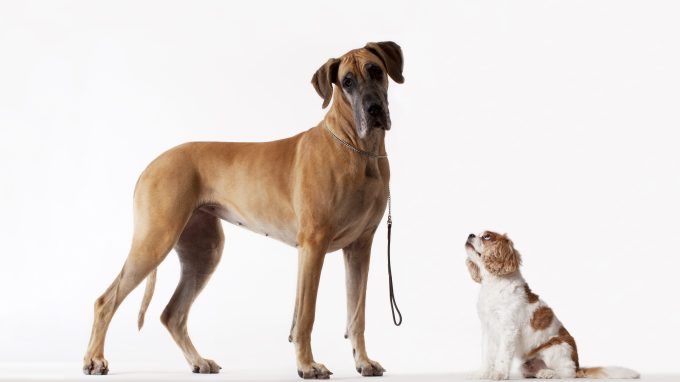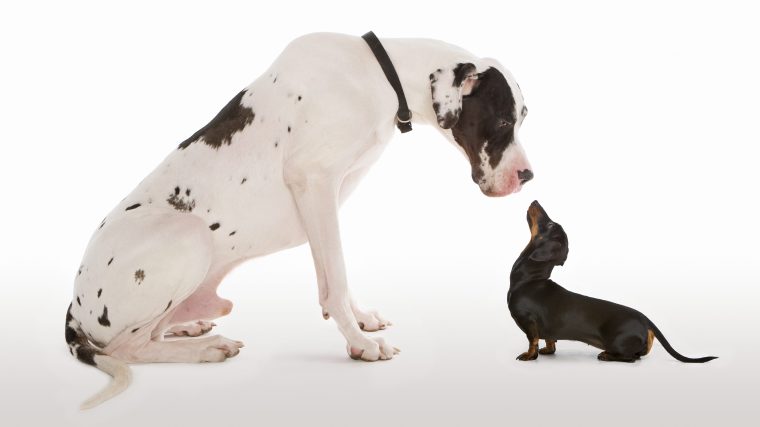When adopting a new dog, figuring out which breed or size best fits your needs can be hard. What size dog should you adopt? Will a large dog become bored in a tiny apartment? Will a small dog become too anxious if you work away from home? It’s always a big dog vs. small dog battle. But hey, if you’re in the middle of this internal debate, we’re here to help. This guide can help you make the right choice before you adopt.
Pros of big dogs
Big dogs make great companions for a variety of lifestyles. Many are family-friendly breeds, such as the Golden Retriever, that make great companions for families with kids. Large dogs, like the German Shepherd, can also be loyal and protective, alerting you to someone at the door or keeping watching when you’re away from home. Other breeds, such as the energetic Border Collie, make a great working, jogging, and hobby companion eager to run alongside you on a long jog or the agility course.
Cons of big dogs
However, large dogs can have some drawbacks compared to their smaller counterparts. If you live in an apartment or don’t have a big yard, you may not have enough space for a large breed. This can lead to anxiety and destructive behaviors — like chewing up your couch — if they don’t get enough mental stimulation or exercise away from home. Larger breed dogs can also be more expensive to care for. Bigger size means bigger appetites, which can be costly when it comes to buying high-end foods. Bigger breeds can also be prone to some health issues that may become costly.

Pros of small dogs
Small, adorable, and easy to fit in your purse for a trip to the beach or a fancy hotel, small-breed dogs can be great companions. Small breeds, like the Pomeranian, make a perfect travel companion, as most hotels and travel services allow small dogs under twenty pounds to travel with their owners. They’re also great for small apartments that may have similar breed and size restrictions. In addition, a smaller dog like a Chihuahua may be easier to care for, requiring less exercise daily.
Cons of small dogs
Small dogs do have some drawbacks, however. They may be less protective when it comes to chasing off a burglar. They can also be prone to some health issues that don’t affect larger breeds, such as heart diseases, dental and jaw issues, knee dysplasia, and more. Smaller dogs may also be more vocal, which can be hard to manage if you prefer a quiet home. And, much like their larger counterparts, small dogs still need an equal amount of training to prevent issues such as separation anxiety and boredom.
Big dog vs. Small dog: How to decide
The best thing to consider when wondering what size dog to adopt is your lifestyle. Are you looking for a running companion or someone to lay on the couch with? Do you want a small dog to travel with you, or a family pet the kids can play with? These factors are all important when determining if a dog is right for you.
Comparing breeds is also an important step, as knowing the health concerns, physical and mental needs, and personalities of different breeds can narrow down which one fits your lifestyle. And lastly, if you do find a dog that seems to be a match, take the opportunity to meet them in person before adopting. This can help determine if the two of you are meant to be.
Once you’ve determined what size dog is best, you may have a few other questions! Debating what age dog to adopt? Consult our puppy vs. adult dog guide. Wondering where to adopt your next dog? Check out our shelter vs. rescue guide. These resources can help you on your journey of adoption.









